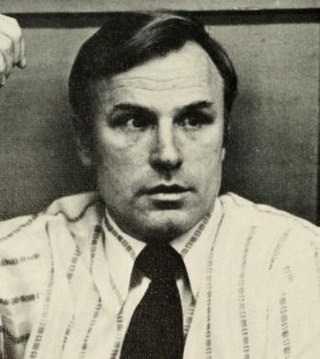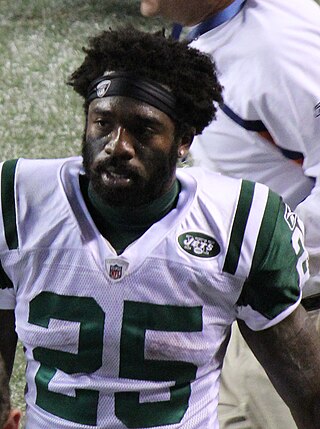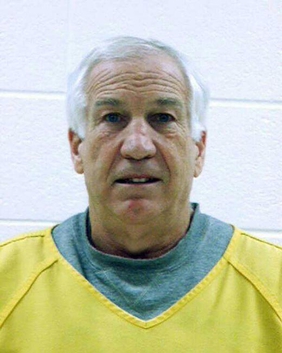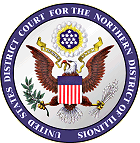The Bay Area Laboratory Co-operative (BALCO) (1984–2003) was an American company led by founder and owner Victor Conte. In 2003, journalists Lance Williams and Mark Fainaru-Wada investigated the company's role in a drug sports scandal later referred to as the BALCO Affair. BALCO marketed tetrahydrogestrinone, a then-undetected, performance-enhancing steroid developed by chemist Patrick Arnold. Conte, BALCO vice president James Valente, weight trainer Greg Anderson and coach Remi Korchemny had supplied a number of high-profile sports stars from the United States and Europe with "the Clear" and human growth hormone for several years.

Joseph R. Morrison was an American football player and coach. He played professionally as a running back and wide receiver in the National Football League (NFL) for the New York Giants from 1959 to 1972. Morrison served as the head football coach at the University of Tennessee at Chattanooga from 1973 to 1979, at the University of New Mexico from 1980 to 1982, and at the University of South Carolina from 1983 to 1988, compiling a career college football coach record of 101–72–7.
The 1988 Notre Dame vs. Miami football game was a college football game played between the Miami Hurricanes of the University of Miami and the Fighting Irish of the University of Notre Dame on October 15, 1988, at Notre Dame Stadium in Notre Dame, Indiana.

Taylor "Tates" Locke is an American former basketball coach. He was described by Rick Telander in the March 8, 1982 issue of Sports Illustrated as being "as high-strung, aggressive and gung-ho over college coaching as anyone has ever been."
Rick Telander is the senior sports columnist for the Chicago Sun-Times. Hired in 1995 from Sports Illustrated, where he was a Senior Writer, Telander's presence at the newspaper was expected to counter the stable of sports columnists the rival Chicago Tribune had.

Joseph Nathan McKnight Jr. was an American football running back and return specialist who played in the National Football League (NFL) and Canadian Football League (CFL).
Jorge Salcedo is an American former soccer player and coach. He was the head coach of the UCLA Bruins men's soccer team. He is a retired American soccer defender who played professionally in Mexico and Major League Soccer. He earned three caps with the United States men's national soccer team.
The 1989 Rose Bowl was the 75th edition of the college football bowl game, played at the Rose Bowl in Pasadena, California, on Monday, January 2. This year marked the 100th anniversary of the Tournament of Roses parade. The Michigan Wolverines of the Big Ten Conference upset the fifth-ranked USC Trojans of the Pacific-10 Conference, 22–14. Down by eleven points at halftime, the Wolverines shut out the Trojans in the second half and won by eight. Michigan fullback Leroy Hoard was named the Player of the Game.
The Barry Bonds perjury case was a case of alleged perjury regarding use of anabolic steroids by former San Francisco Giants outfielder and all-time Major League Baseball career home run leader, Barry Bonds, and the related investigations surrounding these accusations. On April 13, 2011, Bonds was convicted of one felony count of obstruction of justice for giving an incomplete answer to a question in grand jury testimony. A mistrial was declared on the remaining three counts of perjury, and those charges were dropped. The obstruction of justice conviction was upheld by an appellate panel in 2013, but a larger panel of the appellate court overturned the conviction in 2015.

Gerald Arthur Sandusky is an American convicted serial child molester and a retired college football coach. Sandusky served as an assistant coach for his entire career, mostly at Pennsylvania State University under Joe Paterno, from 1969 to 1999, the last 22 years as defensive coordinator. He received "Assistant Coach of the Year" awards in 1986 and 1999. Sandusky authored several books related to his football coaching experiences.
Haney Catchings was an American football coach. He served as head coach at Prairie View A&M University from 1987 to 1989 and at Tuskegee University from 1993 to 1995, compiling a career college football record of 19–41.
The 1988 USC Trojans football team represented the University of Southern California (USC) in the 1988 NCAA Division I-A football season. In their second year under head coach Larry Smith, the Trojans compiled a 10–2 record, won the Pacific-10 Conference (Pac-10) championship, and outscored their opponents by a combined total of 370 to 184.
Jim Washburn is an American football coach. He was the assistant defensive line coach for the Detroit Lions from 2013 to 2015, defensive line coach for the Philadelphia Eagles of the National Football League and the Tennessee Titans' defensive line coach from 1999 to 2010.
Tom Kurucz is a former American football coach.

In United States v. Riggs, the government of the United States prosecuted Robert Riggs and Craig Neidorf for obtaining unauthorized access to and subsequently disseminating a file held on BellSouth's computers. The file, referred to as the E911 file, gave information regarding BellSouth's products implementing 911 emergency telephone services. Riggs and Neidorf were both indicted in the District Court of the Northern District of Illinois on numerous charges relating to the dissemination of the E911 text file. As Riggs had previously been indicted in the Northern District of Georgia in relation to the same incident, his charges from Illinois were transferred to Georgia. Riggs ultimately pleaded guilty in Georgia and was sentenced to 21 months in prison and two years' supervised release. Neidorf pleaded not guilty in Illinois and the government dropped all charges against Neidorf four days after the trial began.
In January 1985, Sports Illustrated published an article on steroid and other prescription drug abuse in athletic programs at Clemson University, South Carolina, which came to light following the death of a world-class track athlete at the school. The article, titled "A Pipeline Full of Drugs" and written by Sports Illustrated's Bill Brubaker, alleged the widespread use of illegally obtained prescription drugs, including steroids, in a number of programs at the university. Following the article, several Clemson coaches were indicted and pleaded guilty to charges of illegal prescription drug distribution, and the scandal ultimately led to the resignation of these coaches, the athletic director, the head of campus police, and the university's president.

The UCLA Bruins men's soccer team is an intercollegiate varsity sports team of the University of California at Los Angeles. The team is a member of the Pac-12 Conference of the National Collegiate Athletic Association.

The University of North Carolina at Chapel Hill football scandal is an incident in which the football program at the University of North Carolina at Chapel Hill was investigated and punished for multiple violations of National Collegiate Athletic Association (NCAA) rules and regulations, including academic fraud and improper benefits to student-athletes from sports agents. The NCAA investigation found that a tutor had completed coursework for several football players, among other improper services. Additionally, the investigation found that seven football players received thousands of dollars in valuables from sports agents or people associated with agents. The NCAA sanctions led to a postseason ban, a reduction of 15 scholarships, and three years of probation. It was the second major infraction case in North Carolina's history and the first since the men's basketball program was sanctioned in 1960 for recruiting violations.
The 2017–18 NCAA Division I men's basketball corruption scandal is an ongoing corruption scandal, initially involving sportswear manufacturer Adidas as well as several college basketball programs associated with the brand but now involving many programs not affiliated with Adidas.
In 2019, a scandal arose over a criminal conspiracy to influence undergraduate admissions decisions at several top American universities. The investigation into the conspiracy was code named Operation Varsity Blues. The investigation and related charges were made public on March 12, 2019, by United States federal prosecutors. At least 53 people have been charged as part of the conspiracy, a number of whom pleaded guilty or agreed to plead guilty. Thirty-three parents of college applicants were accused of paying more than $25 million between 2011 and 2018 to William Rick Singer, organizer of the scheme, who used part of the money to fraudulently inflate entrance exam test scores and bribe college officials. Of the 32 parents named in a Federal Bureau of Investigation affidavit filed in U.S. District Court in Boston, more than half had apparently paid bribes to have their children enrolled at the University of Southern California (USC).









